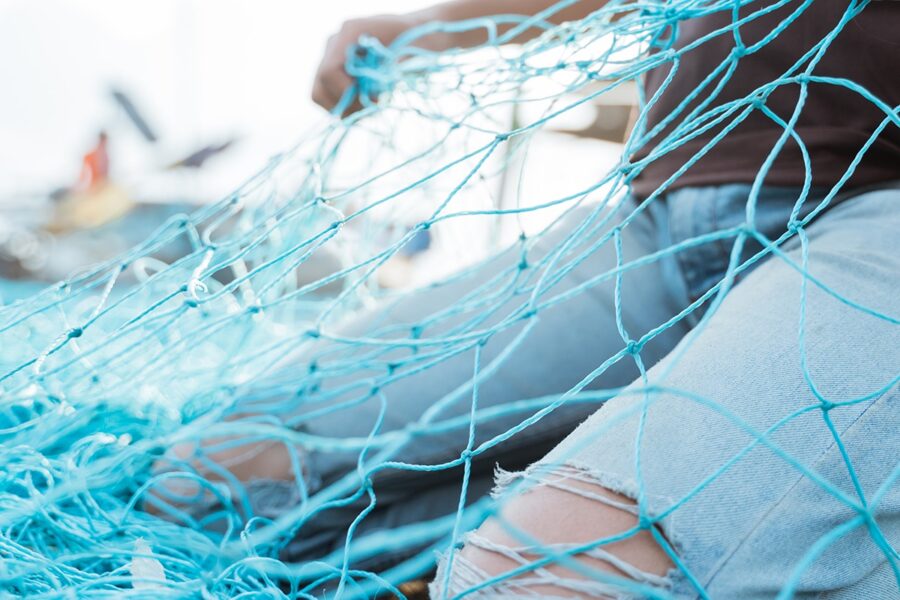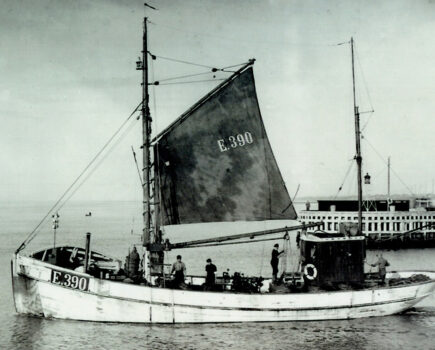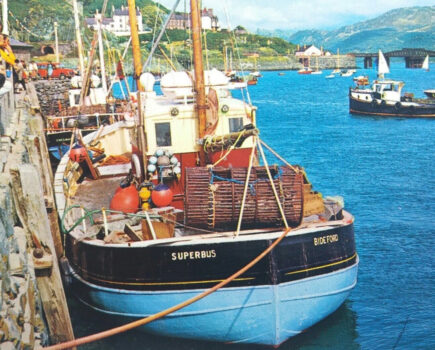Solicitor Jo Pummery discusses the requirements needed if you are carrying a young person onboard
Getting kids away from social networking sites, their phones and video games and into the outdoors is a constant battle for most parents. It’s sad to say that with the technological advances around us, the love of the outdoors seen in past generations of children is seriously in decline.
For the fishing industry, this is naturally a concern. Fishing is hard work with long hours, in potentially dangerous conditions, battling with the elements. Despite this, for many it is a passion, and the rewards can be very good.
One way to get the next generation interested in a career in fishing is to offer them an opportunity to experience a
trip onboard a fishing vessel. Historically, family tradition have led to many generations embracing a career as a fisher, and this can start early in the young person’s life.
However, if you are carrying a young person onboard or are contemplating doing so, there are some requirements which need to be adhered to; further guidance is available from the MCA. Failing to comply with the requirements can lead to prosecution and a fine, not exceeding £1,000.
Any young person carried onboard in the capacity of obtaining work experience must be over the age of 15. In a working environment, there is no provision to carry anyone younger. The work experience must be conducted in the school holidays, unless arrangements have been made with the educational establishment. Prior to stepping onboard, the young person must have completed the Basic Survival at Sea course, and you should ensure you retain a copy of the Seafish certificate.
It is also the skipper and owner’s responsibility to adequately assess all risks in a written risk assessment completed prior to the trip, demonstrating that consideration has been given to ensuring the young person is only engaged in light work or job-shadowing, and that their health and safety and morals are not in danger.
The minimum age for a paid crew member is 16 years, and there are additional requirements to comply with compared with employing crew members over the age of 18. The young crew member must have completed all the four required basic training courses before joining the boat; the Seafish certificates must be viewed, and a copy should preferably be retained for your records. They must also be in possession of a current medical fitness certificate.
MSN 1882 (F) Amendment 1 provides details of the applicable fishing regulations, and confirms that all under-18s who have not attained Level 3 qualifications should continue their education until their 18th birthday.
An apprenticeship scheme has been developed in England by the Cornish FPO, which it is hoped will be delivered in early 2022. The Scottish Maritime Academy offers a 12-week trainee deckhand course. Other courses will be available throughout the country.
Work activities which may jeopardise the health, safety or morals of a young person must not be carried out by anyone under 18, nor must tasks which are hazardous, unless they are in the context of training and properly supervised.
A written risk assessment should be undertaken prior to a young person joining the crew, which assesses all risks, taking into account the inexperience, lack of awareness of risks and immaturity of young persons. The crew member should be informed of all possible risks identified, and the measures adopted for their protection. A separate written record of young people carried onboard should also be kept, as well as the Fisherman’s Work Agreement.
Health surveillance must be provided to any young crew member required to work at night, which must
be reflected in the risk assessment. ‘Night’ is any period of nine consecutive hours including the hours between midnight and 5am local time. ‘Health surveillance’ involves the free assessment of the crew member’s health and capacities before starting work, and regular monitoring thereafter.
In addition, a young crew member should be given at least 12 consecutive hours’ rest in any 24 hours, and should have a rest period of two days in every week, consecutive if possible. Where they work over 4.5 hours, a 30-minute break should be given.
Check with your insurer or broker that there is cover in place for you to take a work-experience young person or an under-18 crew member onboard. If an accident happens, the duty on the skipper and owner to ensure the safety of the young person will be very high. A young person should be strictly supervised at all times, and there should be good evidence of the training in practices and procedures undertaken, enabling them to complete assigned tasks safely.
So whilst there are a number of requirements, these mainly reflect common sense when introducing a young person to a very different and challenging working environment. Developing the next generation of fishers by educating, equipping and inspiring them will help the resources being relied upon now to be available for future generations.
Marine Scotland is currently providing support to new entrants in the form of grants towards up to 75% of the costs of buying a second-hand boat. Further details on eligibility can be found on page 10 of the Marine Fund Scotland general guidance on the Scottish government website.
Jo Pummery, a solicitor with the specialist marine law firm Bartons, is a qualified new-entrant fisher who has been to sea on several commercial fishing trips.
Bartons is an award-winning law firm that also specialises in fishing-related personal injury matters and in the sale and purchase of fishing vessels, as well as representing fishermen, owners and fish producers in MMO, IFCA, MCA or HSE interviews and investigations.
To discuss any fishing-related legal issues, please call Jo or the team on: 01752 675740.
Further details can be found here.
This story was taken from the latest issue of Fishing News. For more up-to-date and in-depth reports on the UK and Irish commercial fishing sector, subscribe to Fishing News here or buy the latest single issue for just £3.30 here.








